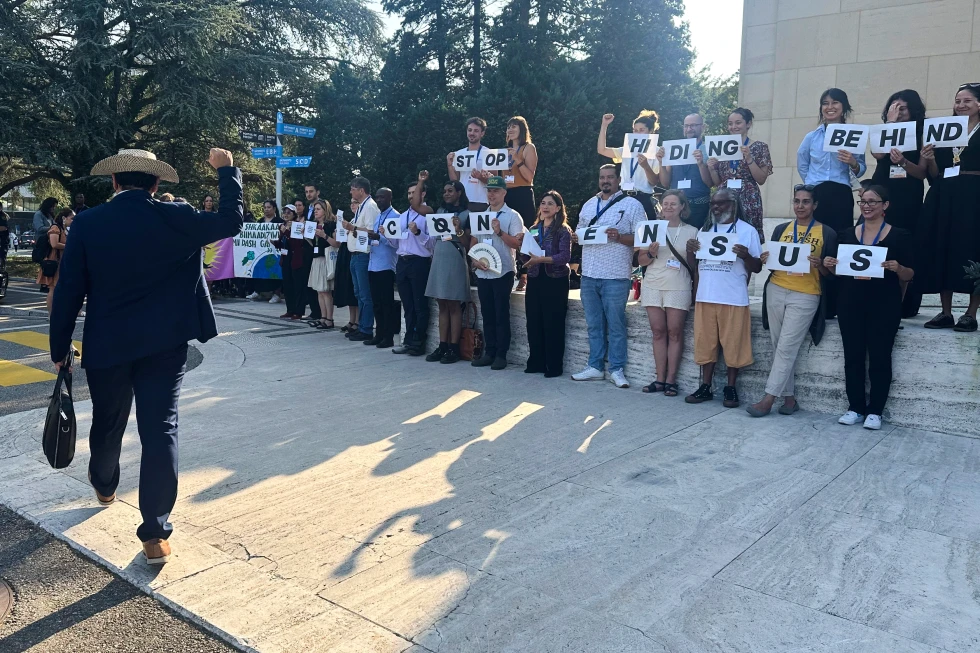News Insights · August 12, 2025 · 2 minutes read

The fifth session of the Intergovernmental Negotiating Committee (INC-5.2) on plastic pollution is being held in Geneva from 5–14 August 2025. In 2022, UNEP began negotiations to create a treaty addressing the entire plastic life cycle. The aim is to finalize a legally binding treaty covering plastic pollution from production to disposal.
Two Main Groups
- High Ambition Coalition (HAC): Led by Norway and Rwanda, with nearly 80 members including EU countries, they seek binding targets to limit or cut plastic production, phase out harmful chemicals, and enhance product design.
- Like-Minded Countries (LMC): Includes Saudi Arabia, Iran, China, and Cuba. India recently expressed support for this group. They oppose production caps, arguing that focus should be on waste management, recycling, and anti-littering measures.
The U.S. is not part of either group but has also opposed production caps.
Reasons for the Split
The Institute for Energy Economics and Financial Analysis (IEEFA) reports Asia now leads global trade in primary plastic polymers. Production has shifted from Europe to South and Southeast Asia. Petrochemical exporters fear that production caps would hurt trade and industrial output.
Petrochemical refining is facing oversupply, declining demand, and shrinking profit margins. Some experts say production cuts would also make economic sense, but oil-producing states remain opposed.
INC-5.2 discussions are focusing on whether the treaty should include production limits or address only downstream issues such as waste collection and recycling. Without consensus, there is a risk that the final treaty will avoid upstream restrictions entirely.
Source: The Hindu

Leave a Comment